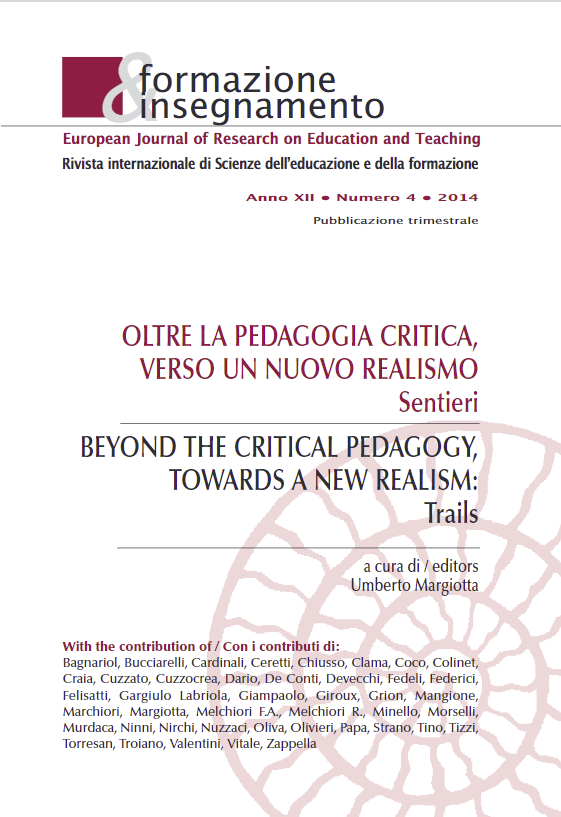Personalized learning in higher education
Abstract
Since 2012 the authors of this study are trying to improve their work as faculty members offering strategies to personalize learning. These strategies have a double theoretical framework; personalization is based on the idea that socio-economical processes of a mass production era are not efficient anymore (Leadbeater 2004; Hargreaves, 2006). Self-directed learning states that the learner has a direct accountability for his own learning process and suggests strategies to develop selfdirectedness.
In our experience, the learners’ response to the proposal of personalize learning is not always positive. The analysis of the students’ opinions may help to understand the reasons of their participation or rejection and may improve the quality of the proposal. The participants in this study were 39, enrolled in the Master Degree Program “Management of Educational Services” at the University of Padua. The authors used a learning needs self-evaluation instrument to know
the learner, realized a personalized learning plans through learning contracts, and administered two questionnaires, with open and closed questions, to collect the learners’ perceptions. The analysis of the answers suggests feelings of curiosity, excitement and interest but denotes initial difficulties and disorientation. Finally, authors individuated four basic themes: knowledge and
skills as inadequate, lack of time, lack of a work, and negative feelings in response to the change.
Downloads
Published
How to Cite
Issue
Section
License
Copyright (c) 2014 Ettore Felisatti, Mario Giampaolo

This work is licensed under a Creative Commons Attribution 4.0 International License.
Formazione & insegnamento is distributed under Attribution 4.0 International (CC BY 4.0).
For further details, please refer to our Repository & Archiving Policy, as well as our Copyright & Licensing Terms.





